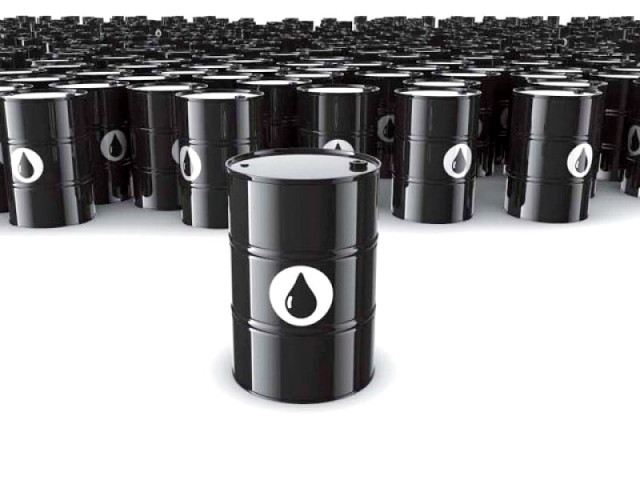Easing pressure: Oil import bill likely to fall 7.6% in current year
Lending agency puts petroleum purchases at $14.6b against target of $15.8b.

Pakistan’s oil import bill is likely to record a fall of 7.6% from the target set in the budget for the ongoing fiscal year on the back of a sharp decline in global oil markets.
At the beginning of fiscal year 2014-15, the government had set the petroleum product import target at $15.8 billion, but now the figure is expected to drop to $14.6 billion.
According to a recent projection made by the International Monetary Fund (IMF), Pakistan’s oil imports will stand at $14.6 billion in the current year, a decline of $1.2 billion compared to the purchases projected in the budget. Last year, oil imports stood at $14.67 billion.
In the international market, Brent crude prices have fallen more than 46% from the peak of $116 a barrel in June. Though the alternatives of oil, such as shale oil, are vastly available in the market, some analysts argue that the collapse of crude market has more to do with falling demand due to a slowing global economy.
Recently, Saudi Arabian Oil Minister Ali al-Naimi announced that the cartel of oil producers, the Organisation of Petroleum Exporting Countries (Opec), would not cut production even if the price fell to $20 a barrel. The world might not see the price back to $100 a barrel again, he added.

Opec producers believe the price could rise to about $70 or $80 a barrel by the end of 2015 as a global economic recovery is expected to boost demand for crude supplies.
Pakistani consumers have also enjoyed a sharp drop in oil prices at home in the wake of the world market rout. The weakened global market also appears to have eased the pressure on the country’s foreign exchange reserves, which continue to increase gradually.
According to figures released by the Pakistan Bureau of Statistics (PBS), oil imports of the country fell 5.37% to $6.11 billion in the first five months (July-November) of the current fiscal year. In comparison, they stood at $6.46 billion in the same period last year.
Of the total, imports of refined petroleum products were recorded at 5.522 million tons valued at $3.86 billion whereas imports of petroleum crude were registered at 2.87 million tons worth $2.25 billion. These imports were down 5.06% and 5.89% respectively when compared with the corresponding five-month period of last year.
In the previous year, imports of refined products stood at 5.531 million tons costing $4.06 billion while petroleum crude imports were 3.081 million tons amounting to $2.39 billion.
The country’s oil purchases are expected to come down further following refusal by Saudi Arabia to slash production levels. IMF economists predict that the low oil prices could boost the global economy by up to 0.7% in 2015.
Similarly, experts say, this will provide an opportunity for Pakistan to accelerate the pace of economic expansion. However, the cheaper crude has also pushed down cotton prices in the country and may force farmers to plant a less area with wheat this season, which will have negative repercussions for the overall economy.
Published in The Express Tribune, December 24th, 2014.
Like Business on Facebook, follow @TribuneBiz on Twitter to stay informed and join in the conversation.



















COMMENTS
Comments are moderated and generally will be posted if they are on-topic and not abusive.
For more information, please see our Comments FAQ